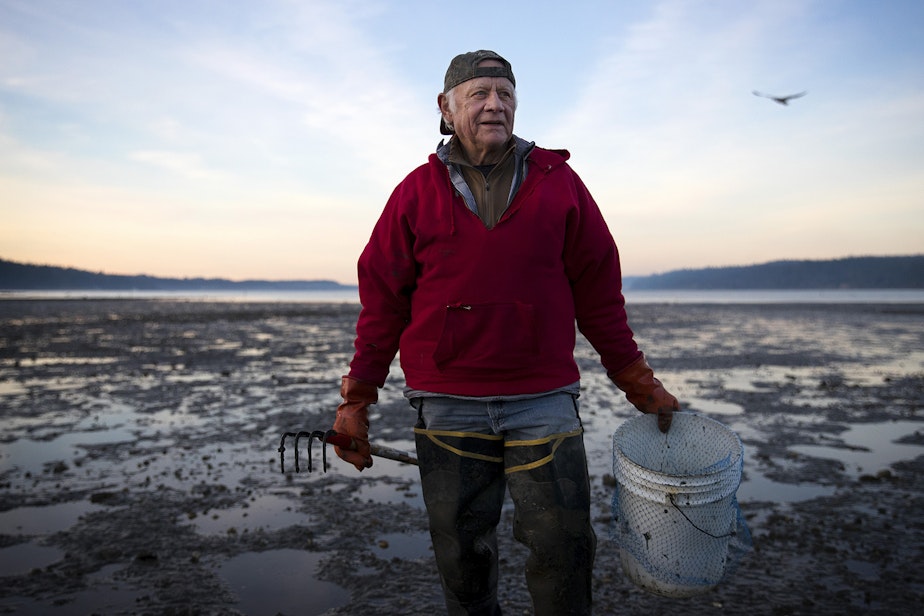Jamestown S'Klallam Tribe poised to help manage key Salish Sea wildlife refuges

The Jamestown S'Klallam Tribe is close to finalizing an agreement with the U.S. Fish and Wildlife Service to co-manage two Clallam County wildlife refuges: the Dungeness National Wildlife Refuge and the Protection Island National Wildlife Refuge, both key breeding places for Salish Sea animals.
If plans move forward, Dungeness would remain open to the public while Protection Island would stay inaccessible to the public. U.S. Fish and Wildlife said the tribe would be working alongside several conservation groups to manage ecosystem recovery and animal life health, research climate change, and respond to oil spills and other cleanup needs.
Managing the Dungeness National Wildlife Refuge would be a historic role for the tribe, being the first of its kind in Washington state, according to Jamestown S'Klallam Tribal Chairman Ron Allen.
RELATED: An ancient beach reborn — and renamed for a clam
“Our tribe has a strong historical and cultural relationship with the Dungeness Refuge since our original village was sitting at the mouth of the Dungeness River," he said. "We have grave sites on the spit that we want to protect, and we are the original stewards of the site."
Sponsored
The Point No Point Treaty of 1855 changed a lot of that, compelling the Jamestown S’Klallam Tribe and others in the area to move onto reservations. After the treaty was signed, land that the tribes previously stewarded and lived on was privatized by non-Native governments, excluding many Native people, said Allie Taylor, the tribe’s Historic Preservation Officer.
“These policies and acts prompted tribal leaders to purchase 210 acres to the east of Dungeness in 1874, at what is now called Jamestown,” she wrote in an email to KUOW.
Allen said that as a sovereign nation, the tribe is uniquely suited to help manage the Dungeness and Protection Island refuges.
“Our tribe can access other public and private resources to improve on the management of the refuge that the U.S. Fish & Wildlife Service can't access,” Allen said. Those resources include fisheries and tribal aquaculture, a volunteer corps, and environmental education programs.
RELATED: Tribe looks to bring back oyster farming to Dungeness Spit
Sponsored
A spokesperson for U.S. Fish and Wildlife said the agency is required to consider requests, such as the one made by the Jamestown S’Klallam Tribe to co-steward the Dungeness and Protection Island refuges, under the Indian Self Determination and Education Assistance Act of 1975.
The federal government has established an increasing number of tribal co-management programs in recent years — an initiative led by Secretary of the Interior Deb Haaland under the Biden administration.




